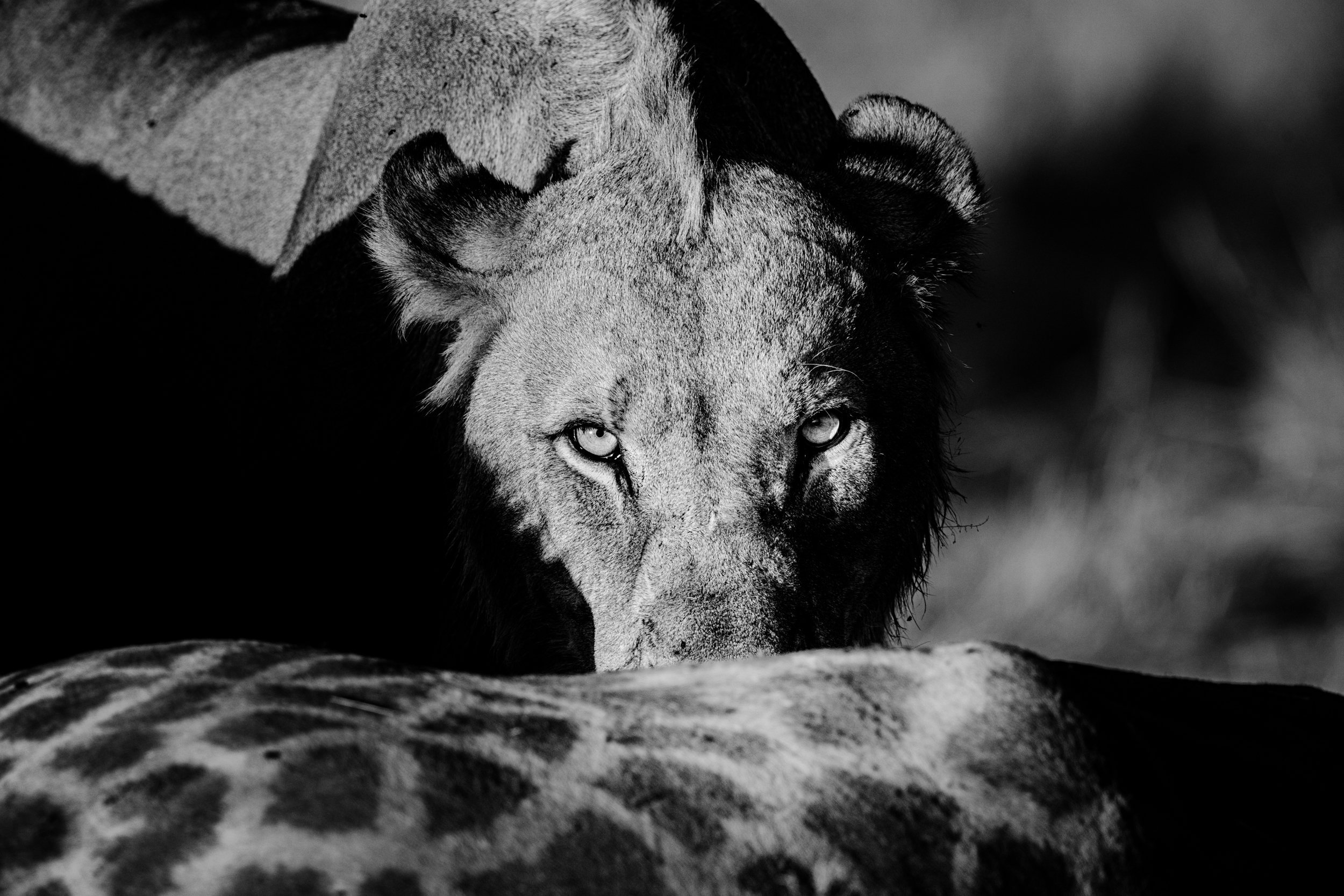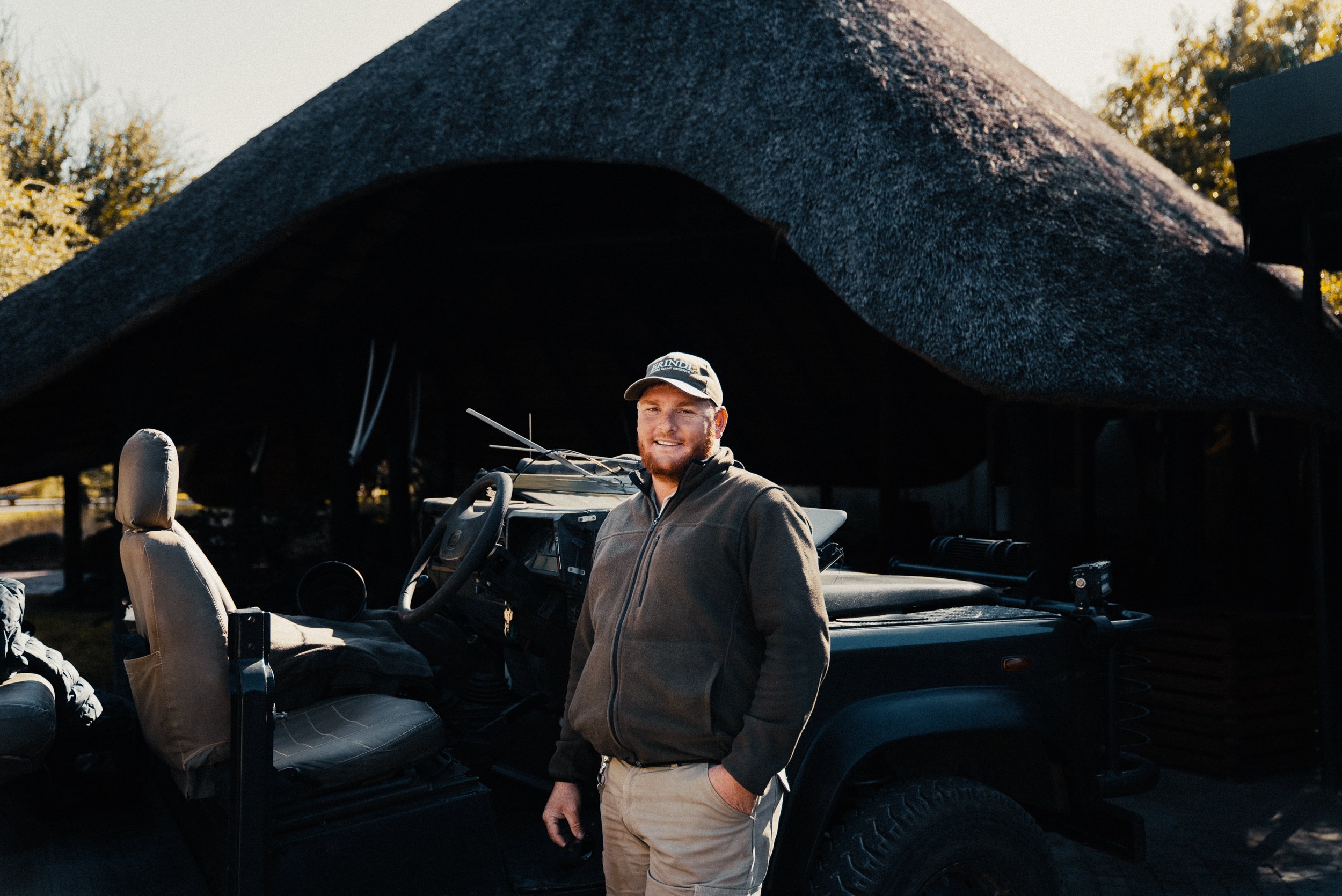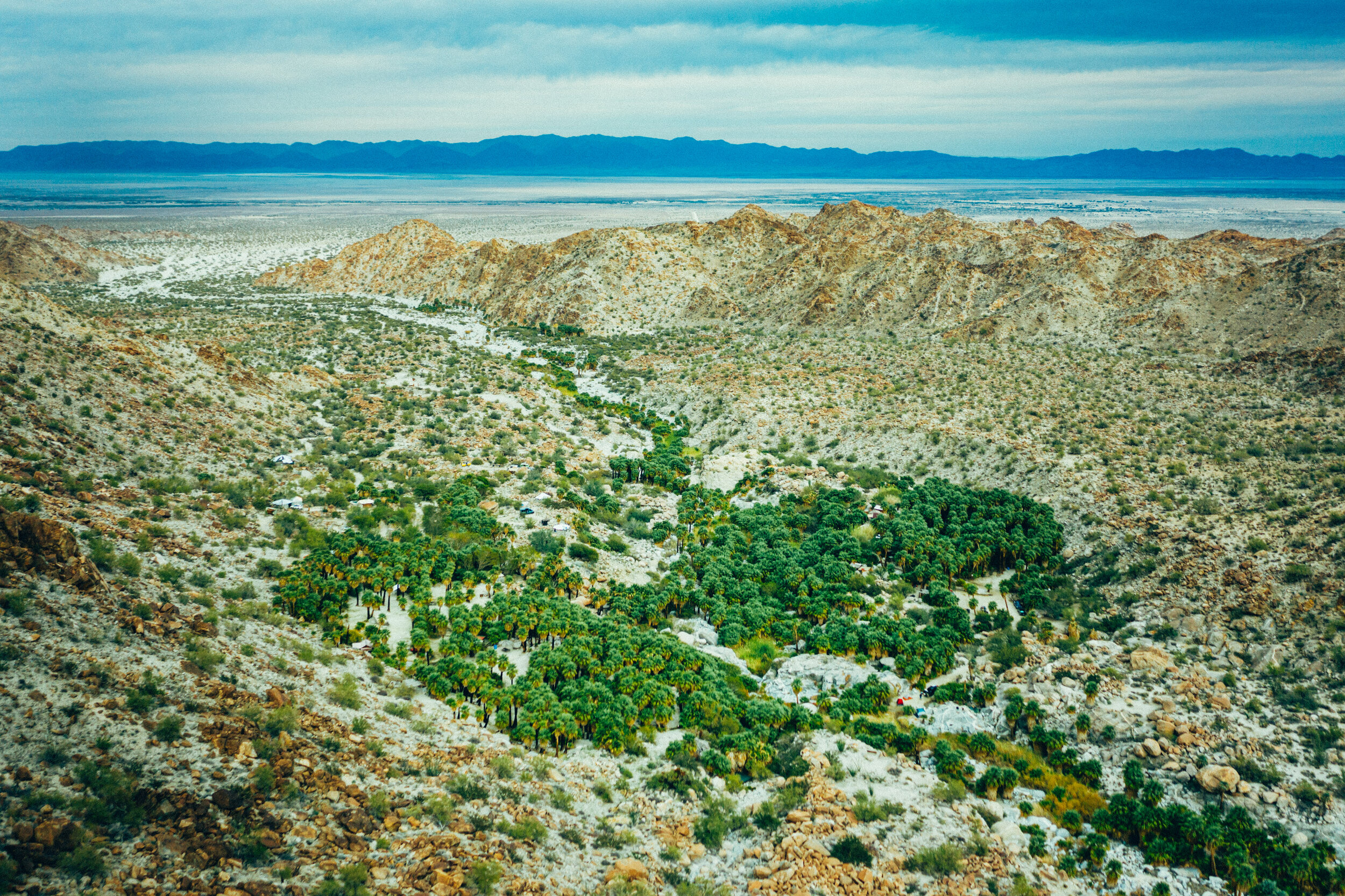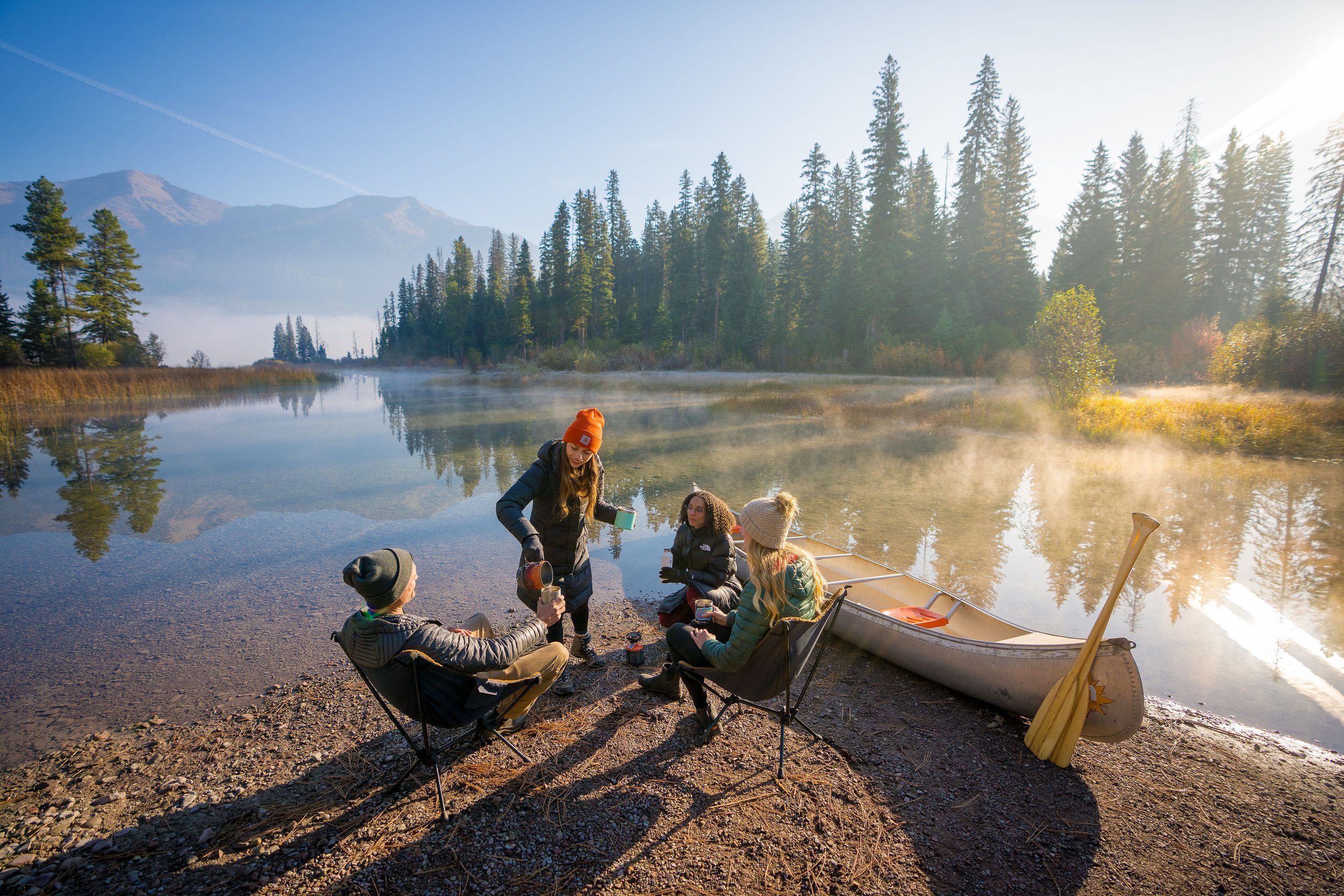Place of Water

Photographing lions, leopards, elephants, and wild dogs in the Erindi Reserve in Namibia, Africa.
By Max Nichols
In the Herero language, Erindi means “place of water.” This private game reserve is a sprawling expanse of mountains, plains, and dense vegetation, spanning over 70,000 hectares and home to hundreds of species of bird and mammal. Or, as the locals call it, simply “the bush.”
We arrive in the afternoon after a short drive from the capital city of Windhoek, and within hours of arrival we’re on our first game drive, riding in an open-roof, doors-off Land Rover Defender nicknamed the “Mud Slut.” She’s a vehicle accustomed to the unforgiving twists and turns of the bushveld, as adeptly suited for life in the bush as her driver—our guide and Dad joke expert Stephen Croucamp.
As we head into the reserve, he regales us with facts about the flora and fauna of Erindi, a dizzying wealth of information that makes our heads spin. And then, within just the first few hours of our time at Erindi, we spot her.
At first it’s just a glimpse of a tail and big, padded feet, so we divert off the road and follow her deeper into the vegetation. What follows is truly one of the most incredible moments of my life. We find a female leopard in a small opening, reclining in the last light of the day, and she looks lazily towards us with piercing green-gray eyes. She’s more beautiful than I could’ve ever imagined. This can’t get any better, I think.
And then she stands, pauses, and walks slowly towards me. Without any doors and squarely at her eye level, my heart skips a beat. Not from fear, but from disbelief. This is really happening. It’s so quiet that I can hear the faint sound of someone’s gulp as they too take in the reality of what’s happening. Later that night, as we heartily dig into a vegan meal prepared by Erindi’s staff, the reality of the encounter still hasn’t sunk in.
The next evening, we head out at about the same time, but I make sure to pack my warmest down jacket and gaiter as I head out the door—it’s been surprisingly cold in the mornings and evenings, especially in a vehicle with so little protection from the wind.
We’ve only been driving for a little while when we slow down. “I’m waiting to see how long it’ll take you to see what I’ve already spotted,” Stephen says mischievously. I sit up, alert, scanning the surroundings. About fifty yards away from us, clustered around a large den site, are a pack of wild dogs. And wild dog pups!
We stay with them the entire afternoon until the sun goes down, watching them frolic and then sleep and then frolic again. The pups are so small, almost fragile, but the way the rest of the pack interacts with them is truly heartwarming. Every time they emerge from the den, sleepy from their nap, almost every adult in the pack rushes over to greet them as if they haven’t seen them in ages. It’s a remarkable display of affection that I’m not used to seeing in the animal kingdom.
But nothing could have prepared me for the next morning. Our goal is a pack of elephants we’ve been trying to track since the previous day, a group that Stephen knows well. And as if the weather gods were smiling upon us, we find them right as the sun breaks over the horizon and fills the clearing with beautiful golden light. The elephants surround us as they graze on the foliage, and one elephant gets a little too close for comfort before it recognizes the calm, soothing tone of Stephen’s voice and gives us some space.
The next three days are a blur of activity. We catch every sunrise and sunset, and I spend most waking hours either ingesting media or trying to get sleep in between the game drives. We see every species of general game imaginable (antelope, kudu, waterbuck, zebra, and many more) and are treated to another encounter with our leopardess. But the next encounter that’s seared most indelibly in my mind is the evening of our seventh day at Erindi.
We get a tip that three young male lions have been spotted near a giraffe kill, so we make the journey out to that area and spot them almost immediately. They’re almost goofy-looking with their mohawks and clumsy, tired antics, but when they begin to feed on the carcass of a freshly killed giraffe, there’s no doubt in my mind as to their raw strength and power.
I expected to see blood when I came to Erindi, but what I didn’t expect to hear were the sounds — the loud, gnarly, and brutal noises of incisors and canines tearing through thick hide. At one point, one of the males pauses and walks right past me to drink water, his tail flicking through the air a mere handful of feet away from my face. Very few moments in my life have left me so truly awestruck.
The next morning is our last day at Erindi. As we head out under our last and final sunrise, I’m left with a bittersweet feeling. “We’ve really seen it all, haven’t we?” is the refrain as the sun begins to rise. “Almost,” I say. Because there is one particular animal that’s evaded us: lion cubs. We caught a glimpse of them on our second evening, but none of the guides have seen hide nor hair of them since then (pun intended).
But I try and keep my hopes in check. We’ve been blessed beyond belief on our drives and have been privy to some beautiful moments. Yet I can’t help that hope, in a display of serendipity, that we might get lucky this morning.
We’re pulled off to the side of a road when I hear the radio crackle to life. I can’t make out what it says, but when Stephen jumps back into the driver’s seat and the fires up the Land Rover as quickly as he can, I know what it is. Cubs.
The next hour is like a dream. The cubs run up and down the road playing with each other, snatching at the tails and feet of their siblings, their antics often bringing them within feet of our vehicle. By the end of their playtime, they’re covered in grass and one plops down right next to me. It’s easily the most adorable moment I’ve witnessed during my time here.
That evening, as we park the Land Rover at a koppie to watch the sunset, a deep sense of fulfillment washes over me. As the sun descends beneath a distant mountain range, I take a deep sigh. This might be the hardest place I’ve ever had to leave. And as we watch the day turn to night, a quote spoken to me earlier by another guide comes to mind: “The only man I envy is the man who has not yet been to Africa; for he has so much to look forward to.”




























